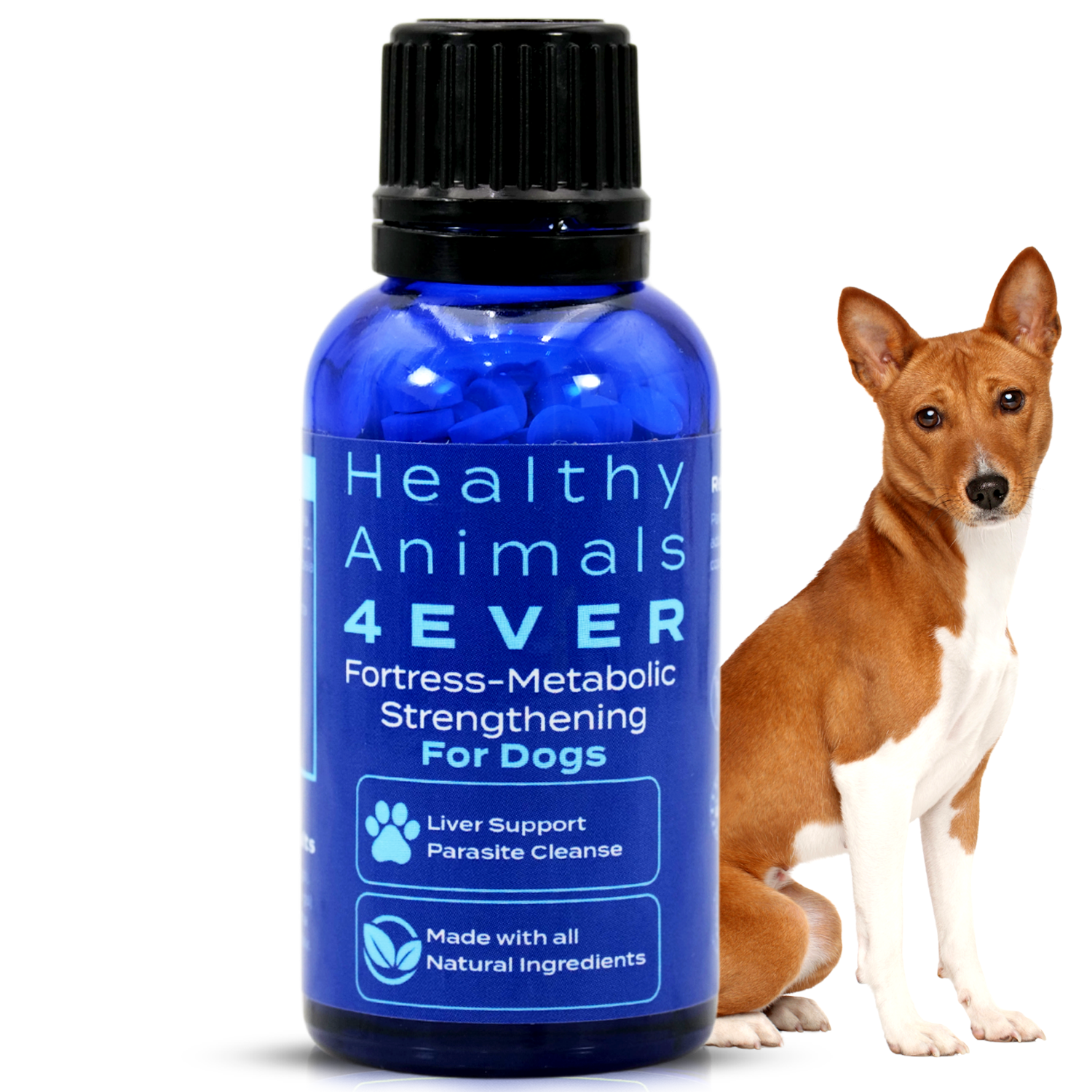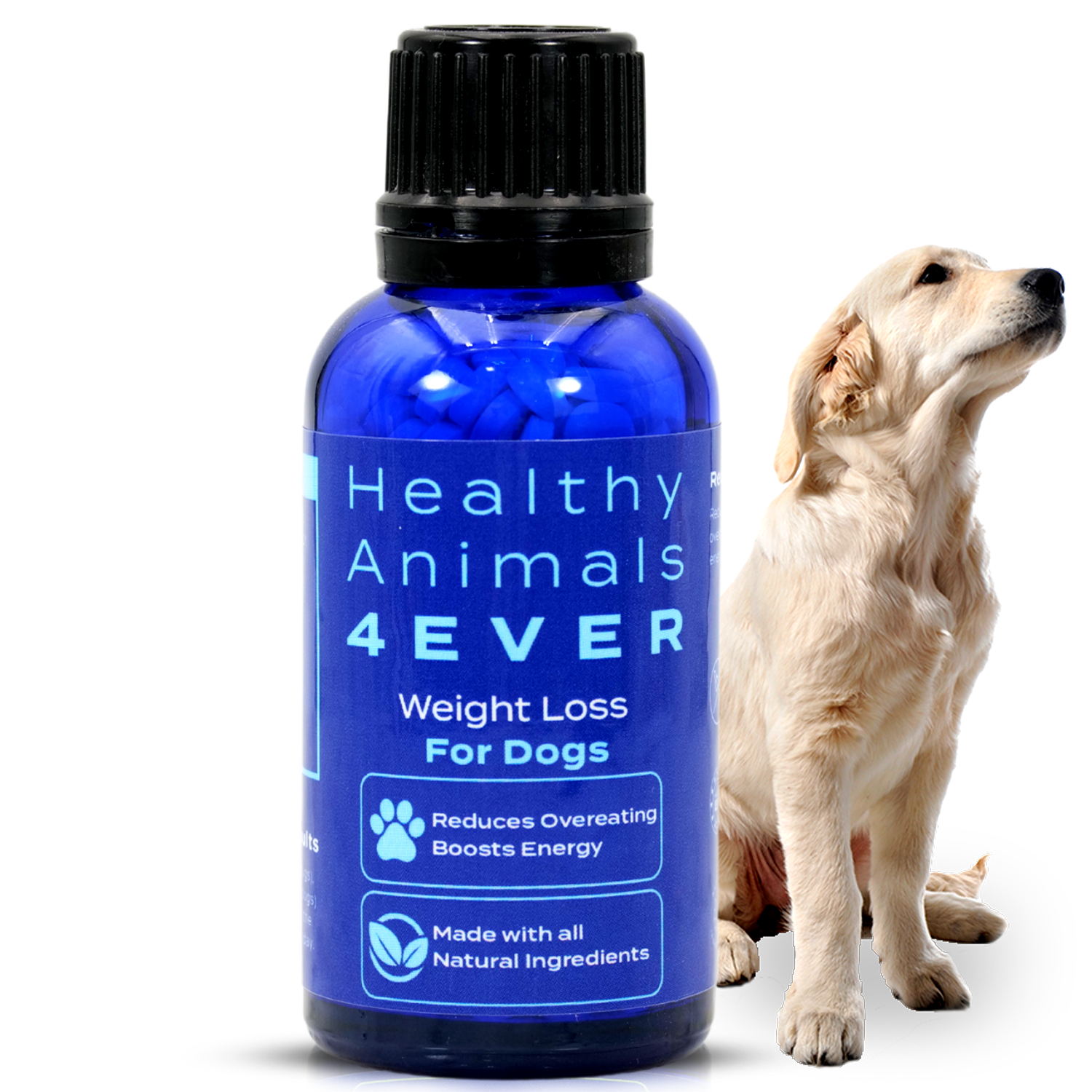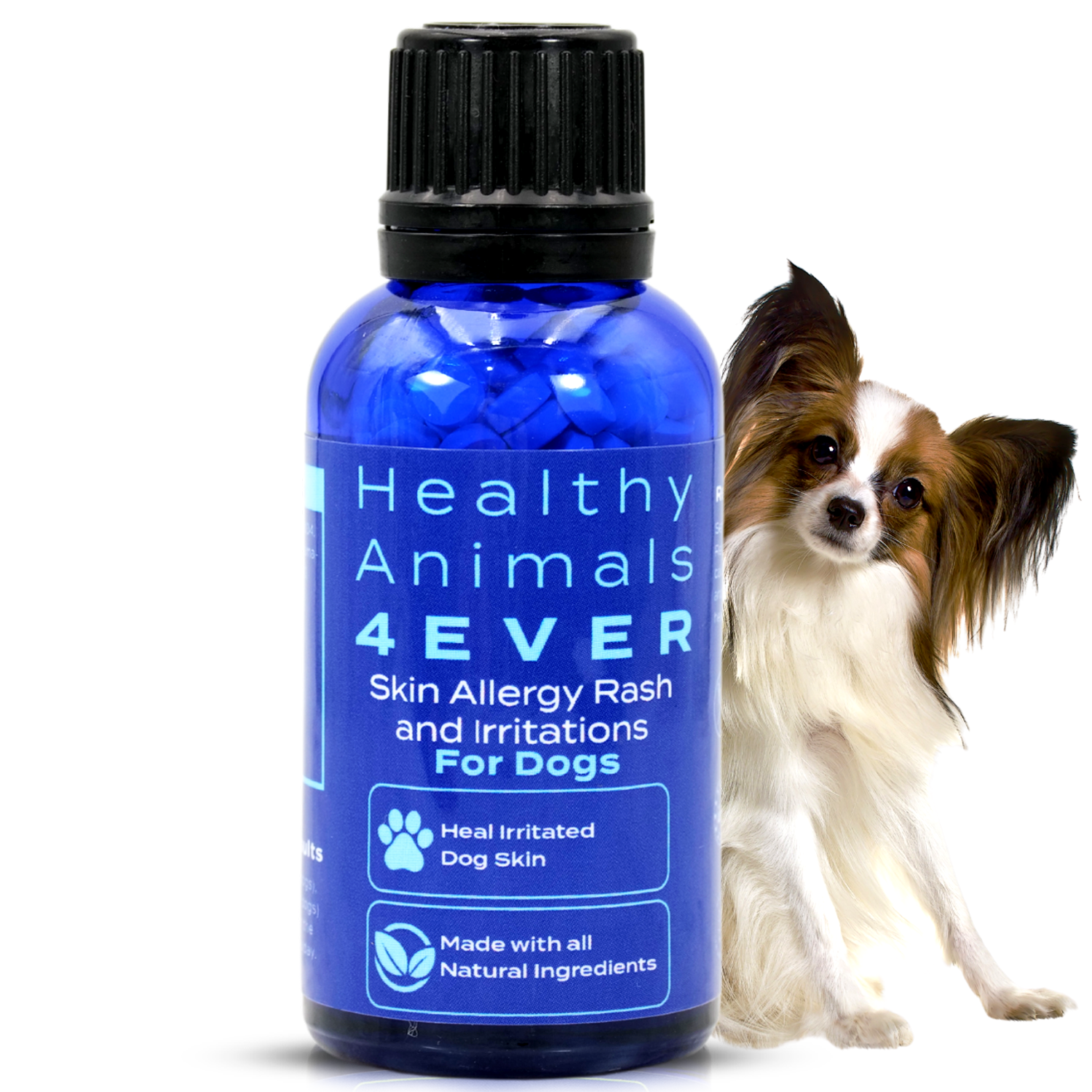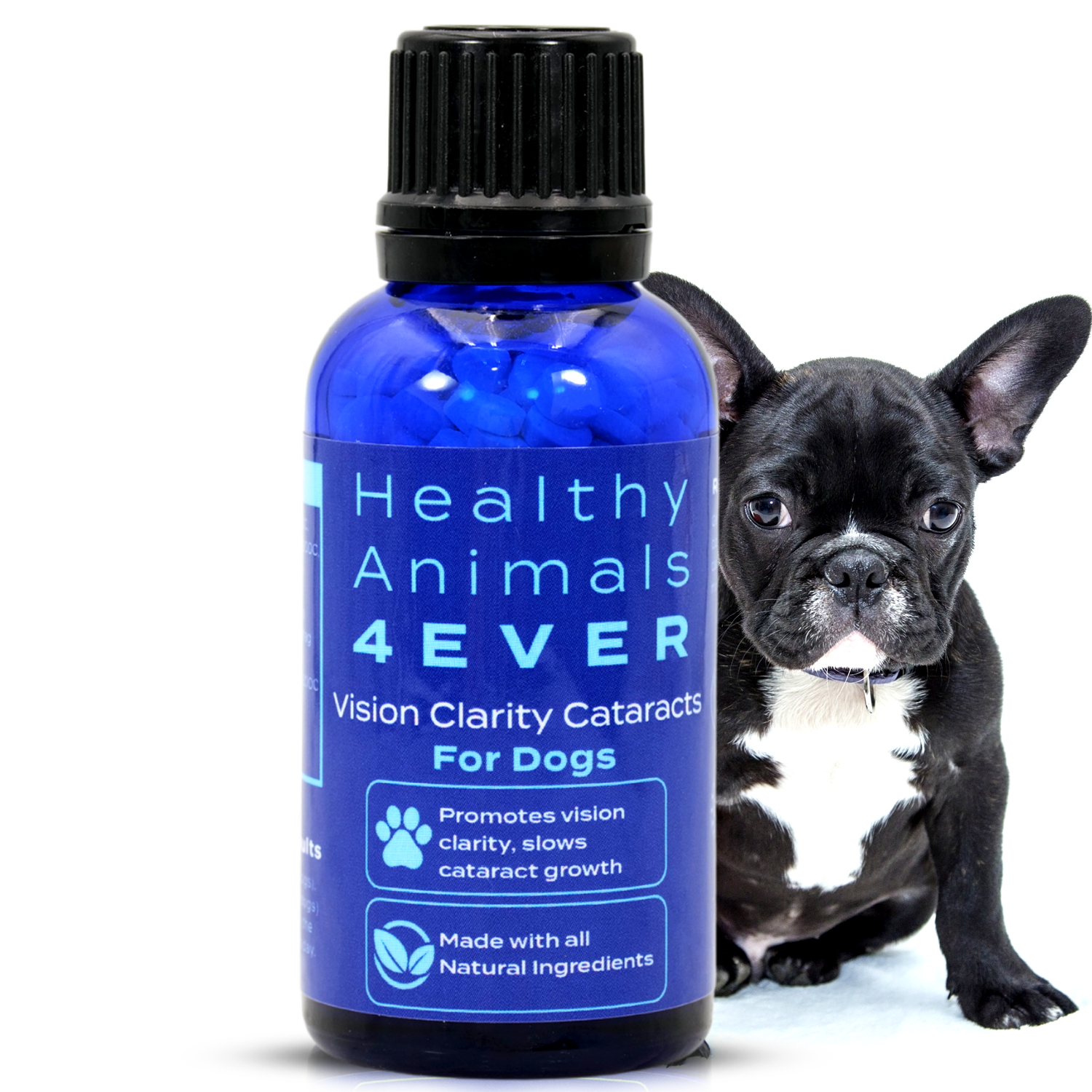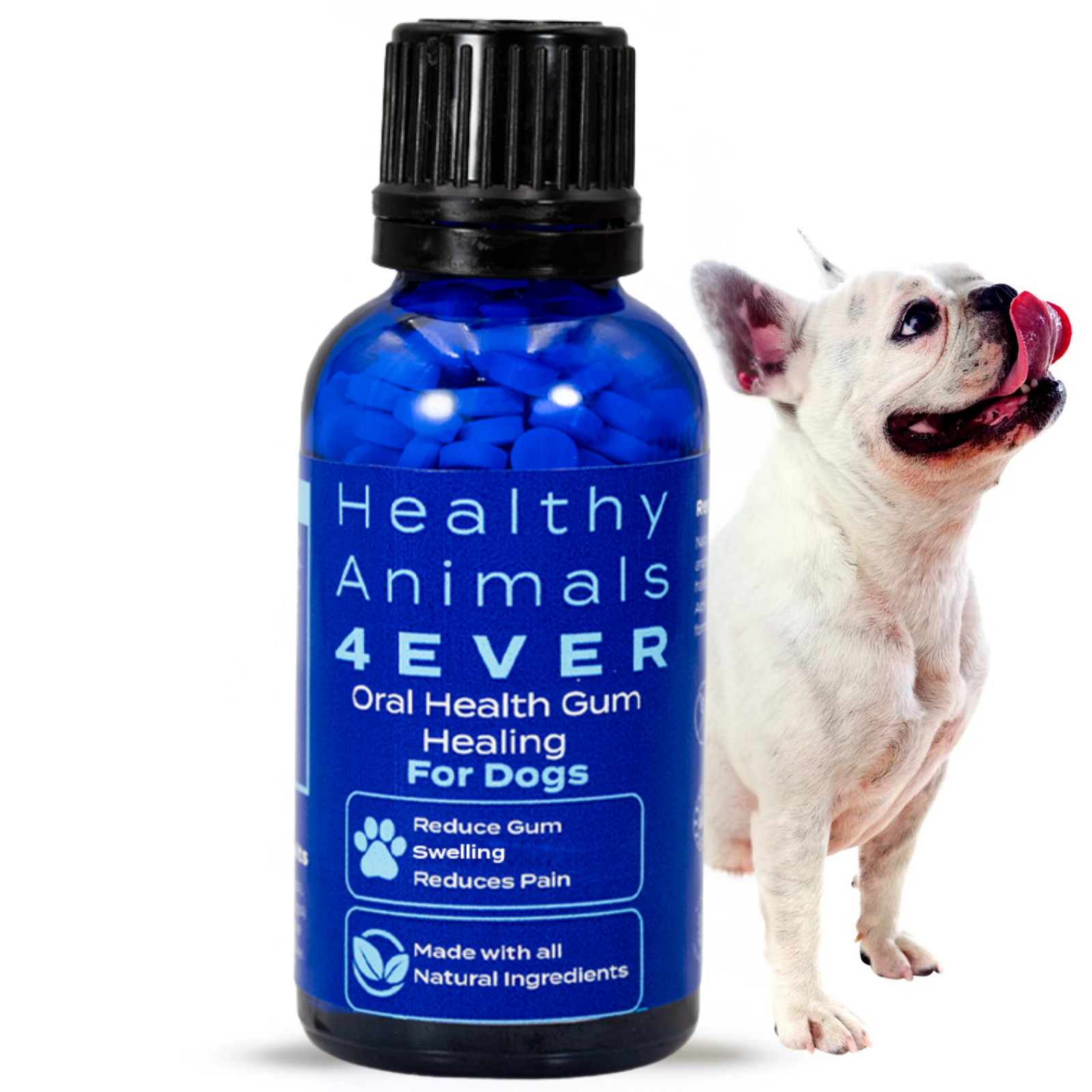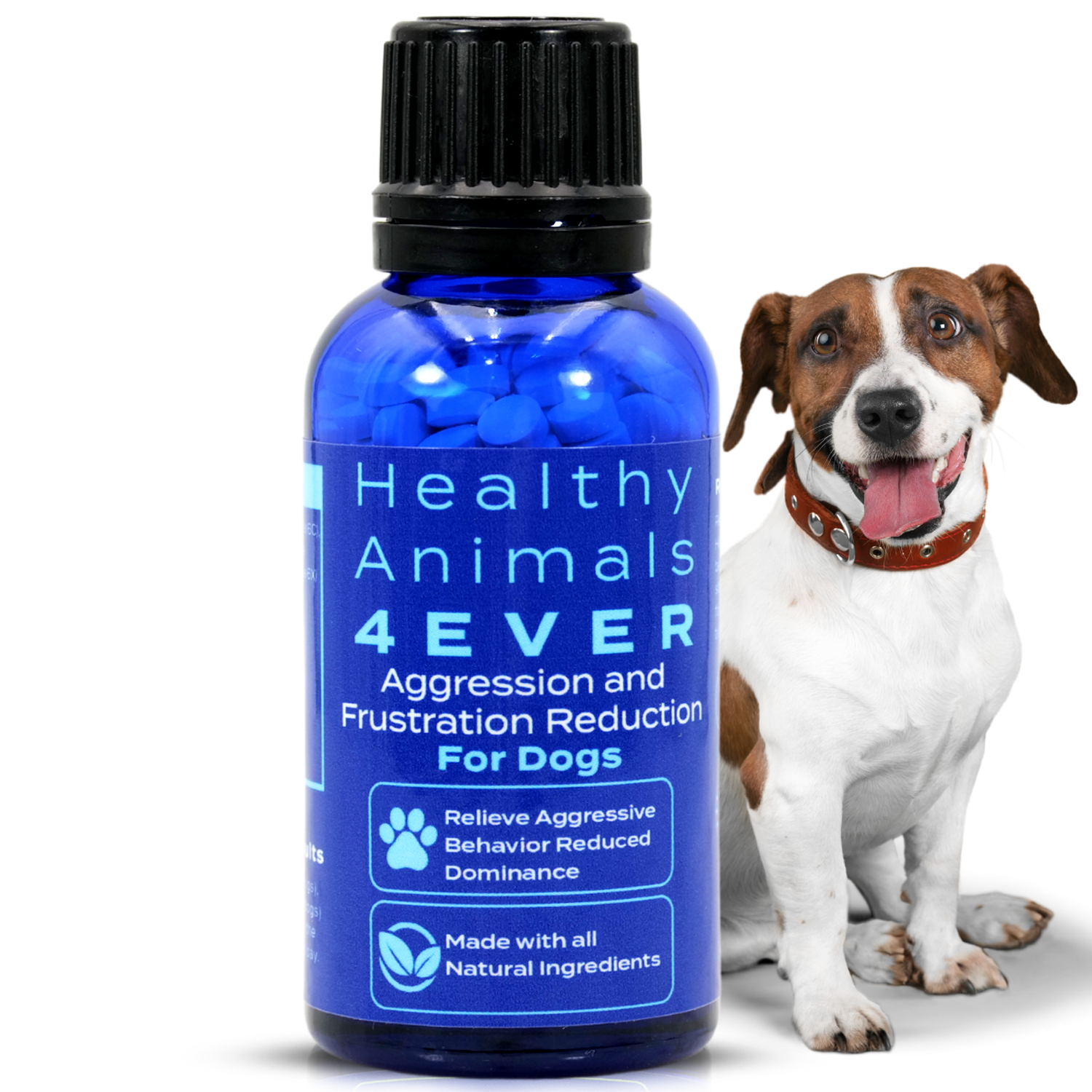Dog's Health Basics: The Ultimate Father's Guide to Optimal Care for Your Furry Family Member
Father's Day is the perfect time to reflect on the joys and responsibilities of being a pet parent. Just like being a father to human children, caring for a dog involves ensuring their well-being and health. Our furry friends depend on us to provide love, attention, and proper care to lead happy and healthy lives.
This comprehensive guide will dive into the fundamental aspects of maintaining your dog's health. From nutrition to exercise and grooming to preventive care, we'll cover everything you need to know to become a dedicated and informed dog dad. Whether you're a new pet owner or have been caring for your four-legged companion for years, this guide will serve as a valuable resource to reinforce your understanding of the basics of dog care.
Fortress-metabolic Strengthening Formula for Dogs helps with parasite issues while keeping your pet comfortable and without experiencing any side effects, such as die-off symptoms (fatigue, anxiety, aches, pains, etc.)
What Are Basic Dog Needs?
Your dog’s basic needs encompass a range of essential requirements that must be met to ensure their overall health, well-being, and happiness.
These needs are fundamental, universal, and vital for your dog's quality of life. So, if you want your furry companion to be happy and healthy, the following are the 8 basic needs you should meet.
1. Proper Nutrition

Proper nutrition for dogs is vital to their overall health, growth, development, and longevity. Here's why:
- Overall Health: Providing your dog with a balanced and nutritious diet is crucial for maintaining their health. A well-rounded diet supports their immune system, aids digestion, and provides nutrients for healthy organ function.
- Growth and Development: Puppies have higher energy and nutrient requirements than adult dogs. They need a diet specifically formulated to support their rapid growth and development, including adequate protein, vitamins, and minerals.
Proper nutrition during the puppy stage sets the foundation for healthy bone and muscle development and cognitive and neurological function.
- Energy and Activity Levels: Dogs require energy to fuel their daily activities and exercise. The right balance of proteins, carbohydrates, and fats in their diet fuels optimal energy levels, ensuring they have the stamina to engage in physical activities.
- Weight Management: Maintaining a healthy weight is crucial for a dog's well-being. Proper nutrition helps prevent obesity, which can lead to various health issues such as joint problems, diabetes, and heart disease. A well-balanced diet, portion control, and regular exercise are essential for weight management.
Weight Loss Formula for Dogs helps reduce your pets desire to overeat.
- Aging and Senior Dogs: As your dog ages, their nutritional needs may change. Senior dogs may benefit from a diet tailored to their needs, such as lower-calorie options to prevent weight gain and joint supplements to support mobility. Adequate nutrition can also help maintain cognitive function and support the immune system in older dogs.
- Specific Health Conditions: Some dogs may have specific dietary requirements due to allergies, food sensitivities, or underlying health conditions. In such cases, working closely with your veterinarian to develop a customized diet that addresses these needs is essential.
Skin Allergy Rash and Irritations - Dogs relieves the itch and irritation caused by environmental allergens and skin irritants.
- Preventive Care: Proper nutrition acts as a preventive measure, helping to reduce the risk of specific health problems. For example, a balanced diet with appropriate nutrients can help prevent dental issues, improve coat health, and support a robust immune system.
2. Regular Exercise

Regular exercise for dogs is crucial for their physical health, mental stimulation, and overall well-being. Here is why:
- Physical Health: Exercise is vital for maintaining a dog's physical health. It helps to keep their muscles strong, joints flexible, and cardiovascular system in good condition.
Regular physical activity aids in weight management, preventing obesity and reducing the risk of associated health issues such as diabetes, heart disease, and joint problems.
- Mental Stimulation: Exercise provides mental stimulation for dogs. It engages their senses, promotes exploration of the environment, and helps prevent boredom and destructive behaviors.
Mental stimulation through exercise can help alleviate anxiety, improve focus, and keep their minds active and sharp.
- Energy Release: Dogs have different energy levels, and exercise is essential for releasing excess energy. Engaging in physical activity allows dogs to expend their energy in a positive and controlled manner, which can help reduce hyperactivity, restlessness, and behavioral problems caused by pent-up energy.
- Bonding and Socialization: Regular exercise allows dogs to bond with their owners and other dogs. Walks, running, and play sessions offer quality time and positive interactions, strengthening the human-animal bond.
Exercise also allows for socialization with other dogs, promoting social skills and reducing the likelihood of aggression or fear toward unfamiliar dogs.
- Lifespan and Longevity: Regular exercise has been linked to an increased lifespan in dogs. It helps maintain a healthy weight, improves cardiovascular health, and reduces the risk of chronic diseases.
Dogs that receive adequate exercise throughout their lives tend to have better overall health and can enjoy a longer and more fulfilling life.
3. Health Care

- Preventive Care: Regular veterinary check-ups and preventive care are vital for maintaining a dog's health. These visits allow the veterinarian to assess the dog's overall well-being, detect any potential health issues early on, and provide preventive measures to keep them healthy. This includes vaccinations, parasite prevention (such as flea and tick control), and regular screenings for common health concerns.
- Dental Care: Proper dental care is essential in dog care. Regular veterinary check-ups often include dental examinations and cleanings to prevent dental diseases such as gum inflammation, tooth decay, and infections.
Maintaining good oral hygiene through professional cleanings and at-home dental care routines helps prevent dental pain, tooth loss, and potential complications affecting other organs.
- Aging and Senior Care: As dogs age, their health needs change. A veterinarian doctor or a homeopathic practitioner can provide guidance on dietary adjustments, joint support, and pain management strategies to improve the quality of life for older dogs.
Vision Clarity/Cataracts Support Formula for Dogs helps to slow cataract growth to stop vision issues at their source.
- Emergency and Urgent Care: Accidents and sudden illnesses can occur at any stage of a dog's life. Access to emergency veterinary care is crucial in these situations. A plan for emergencies ensures that prompt and appropriate medical attention can be provided.
4. Grooming and Hygiene

Dog grooming and hygiene involve maintaining the cleanliness, appearance, and overall well-being of a dog's physical condition. Here is why this is so important:
- Coat and Skin Health: Regular grooming helps maintain a dog's coat and skin health. Brushing removes dirt, dead hair, and tangles, preventing matting and promoting good air circulation to the skin. It also stimulates the production of natural oils that keep the coat moisturized and healthy. Regular grooming helps to prevent skin issues such as irritations, infections, and hot spots.
- Shedding Control: Many dogs shed their hair, and regular grooming can help manage excessive shedding. Brushing helps remove loose hair from the coat, reducing the amount of hair on furniture and clothes.
This is particularly important for certain breeds with long or dense coats, as excessive shedding can lead to matting and skin problems if not properly managed.
You might also like the following:
- Explore Natural Remedies to Keep Your Pets Healthy and Happy
- CHECK OUT HOW TO BE A GOOD DOG OWNER
-
CHECK OUT WHAT TO EXPECT FROM YOUR NEW PUPPY
- Ear Care: Proper ear care is essential to prevent ear infections and maintain overall hygiene. Regularly inspecting and cleaning the ears help remove dirt, wax buildup, and debris that can lead to infections.
Certain breeds with floppy ears or hair in the ear canals may require more frequent cleaning and specialized care to prevent issues.
- Nail Care: Regular nail trimming is necessary to keep a dog's nails at an appropriate length. Overgrown nails can cause discomfort, difficulty walking, and even affect the dog's posture.
Regular trimming prevents nails from becoming too long and reduces the risk of injuries or nail-related problems.
- Dental Care: Good dental hygiene is crucial for a dog's health. Regular teeth brushing helps prevent tartar buildup, gum disease, tooth decay, and bad breath.
Oral Health Gum Healing Formula for Dogs reduces gum inflammation.

Dogs are social animals and thrive on social interaction with humans and other animals. Socializing dogs is essential to:
- Mental Stimulation: Social interaction provides mental stimulation for dogs. Engaging with humans and other animals allows dogs to experience new sights, sounds, smells, and experiences. It helps keep their minds active, prevents boredom, and stimulates their cognitive abilities.
- Emotional Well-being: Dogs form deep emotional bonds with their human companions and other animals. Regular social interaction fulfills their emotional needs for companionship, love, and affection. It helps prevent feelings of loneliness, separation anxiety, and depression.
- Behavioral Development: Adequate social interaction during early puppyhood is crucial for healthy behavioral development. It helps puppies learn appropriate social skills, such as communicating and interacting with other dogs and humans.
Aggression and Frustration Reduction - Dogs reduces the dominance and aggression your pet may feel, and also may help relieve aggressive pet behavior in new or stressful situations. Keep in mind, that this is not a replacement for effective and consistent training.
Proper socialization at a young age reduces the risk of behavioral problems, fearfulness, and aggression later in life.
- Exercise and Play: Social interaction often involves physical activity and play. Dogs benefit from interactive play sessions with their owners and social activities with other dogs.
Play helps release energy, maintain physical fitness, and develop coordination and motor skills.
- Confidence and Training: Social interaction builds a dog's confidence and helps them become well-rounded and adaptable. Positive interactions with various people, animals, and environments increase a dog's comfort level in different situations, making them more receptive to training and less prone to fear or anxiety.
6. Training and Mental Stimulation

Training and Mental Stimulation for dogs play a vital role in their overall well-being, behavior, and cognitive development. Here's how:
- Behavior and Obedience: Training helps establish desirable behaviors and obedience in dogs. Dogs learn commands, cues, and boundaries through positive reinforcement training techniques.
Training can teach your dog to behave appropriately in various situations, follow instructions, and respond to your cues. It promotes good manners, prevents problem behaviors, and enhances your bond.
- Mental Well-being: Mental stimulation is crucial for your dog's cognitive development and well-being. Engaging their minds with training activities, puzzles, games, and interactive toys helps prevent boredom, reduces destructive behaviors, and keeps their brains active and challenged.
Mental stimulation can range from simple tasks like teaching basic commands to more complex activities that require problem-solving skills.
- Bonding and Communication: Training allows you and your dog to bond and communicate effectively. Positive training sessions strengthen the trust, understanding, and relationship between you. It allows for clear communication, enhances mutual respect, and fosters a strong bond based on trust and cooperation.
- Confidence Building: Training helps build your dog's confidence and self-esteem. As your dog learns and accomplishs new tasks, they become more confident. This confidence extends beyond training sessions and positively impacts their overall behavior and interaction with the environment.
7. Comfortable and Safe Living Environment:

Providing your dog with a secure, clean, and suitable space is essential for their physical and emotional well-being.
- Shelter: Your dog requires shelter to protect them from extreme weather conditions, such as rain, heat, cold, or wind. A suitable shelter, such as a dog house or indoor crate, ensures they have a safe and comfortable space to retreat to when needed.
- Bedding and Resting Area: Dogs need a comfortable place to rest and sleep. Providing them with a cozy bed or designated resting area ensures they have a quiet and clean space to relax, which promotes their physical comfort and supports good sleep quality.
- Safety: A safe living environment is essential to prevent accidents, injuries, and exposure to hazardous substances. This includes securing the living area, removing or securing potentially harmful objects, and keeping toxic substances, household chemicals, and plants out of reach.
- Exercise Space: Dogs require adequate space for exercise and movement. Providing a secure and suitable area to run, play, and engage in physical activities is vital for their physical health, muscle development, and mental stimulation.
- Environmental Enrichment: Dogs benefit from a stimulating environment that offers a variety of sensory experiences. This can include providing toys, interactive puzzles, and access to different textures, sounds, and scents. Environmental enrichment helps prevent boredom, reduces anxiety, and promotes mental and emotional well-being.
8. Love and Attention
Dogs are social animals that thrive on human companionship and affection. Here's why your love and attention are so essential for your dog:
- Emotional Well-being: Dogs form strong emotional bonds with their human companions. Love and attention fulfill their need for companionship, affection, and emotional connection.
Your dog thrives when they feel loved, valued, and included in the family. Regular displays of love and attention contribute to their overall emotional well-being and happiness.
- Socialization: Love and attention are essential for proper socialization. Dogs who receive love and attention from a young age are more likely to be well-adjusted and confident in various social situations. They learn to trust and develop positive relationships with humans and other animals, reducing the risk of behavioral problems and fearfulness.
- Stress Reduction: Love and attention help reduce stress and anxiety in dogs. When your dog feels loved and receives attention, they feel secure and less prone to experiencing separation anxiety or other forms of distress.
Spending quality time with your dog, engaging in activities they enjoy, and providing reassurance through affectionate gestures can help alleviate stress and promote relaxation.
- Bonding and Trust: Love and attention are crucial to building a solid bond and fostering trust between dogs and their human companions. Regular displays of affection, such as petting, cuddling, and gentle touch, create positive associations and strengthen the bond.
Dogs who feel loved and attended to are more likely to listen to commands, follow instructions, and develop a deeper connection with their owners.
- Mental Stimulation: Love and attention contribute to your dog's mental stimulation. Interacting with humans, engaging in play, and receiving attention stimulate their cognitive abilities, prevent boredom, and provide a sense of fulfillment.
Dogs who feel loved and attended to are likelier to exhibit positive behaviors, show curiosity, and actively participate in training and enrichment activities.

The Bottom Line
Meeting your dog's basic needs is crucial for their well-being and happiness. Proper nutrition, regular exercise, veterinary care, grooming, social interaction, training and mental stimulation, a comfortable and safe living environment, and love and attention are all essential components of a dog's basic needs.
Understanding and fulfilling these needs can provide your dog with a healthy, fulfilling, and enriched life as a beloved companion.









